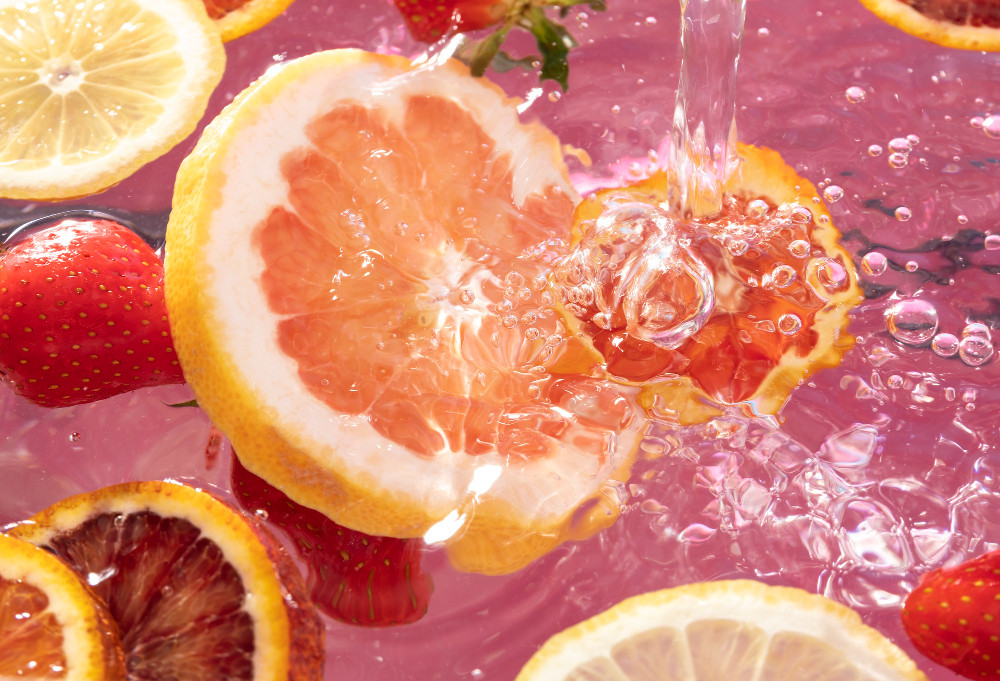Alergi adalah mekanisme dimana sel kekebalan tubuh bereaksi berlebihan pada zat yang seharusnya tidak berbahaya. Reaksi alergi dapat muncul berupa bersin-bersin, gatal-gatal, hidung berair atau munculnya ruam kulit. Untuk mengatasi alergi Anda bisa mengonsumsi obat yang mengandung antihistamin. Selain obat-obatan, antihistamin juga bisa Anda dapatkan dari beberapa bahan makanan.
Makanan Anthistamin Alami
Reaksi alergi muncul akibat respons tubuh yang berlebihan terhadap zat yang tidak berbahaya. Alergen atau pemicu alergi dapat berupa serbuk sari, bulu binatang dan debu.
Bagi para pengidap alergi, ketika alergen terhirup dan kontak dengan mukosa pada hidung, mulut, atau paru-paru, hal ini dapat memicu pelepasan senyawa bernama histamin. Pelepasan inilah yang menimbulkan reaksi alergi seperti bersin, gatal, dan gejala alergi lainnya.
Untuk mengatasi alergi, Anda bisa minuum obat antialergi yang tersedia bebas di pasaran. Selain minum obat-obatan, Anda juga bisa mendapatkan antihistamin alami yang terdapat dalam bahan-bahan berikut:
Vitamin C
Vitamin C termasuk vitamini larut air yang banyak dijumpai pada berbagai bahan makanan sehari-hari seperti sayuran hijau, buah sitrus, dan kelompok beri. Sebuah penelitian mengungkapkan mengonsumsi vitamin C dapat membantu mengatasi gejala rinitis alergi seperti bersin-bersin dan gatal.
Beberapa makanan yang mengandung vitamin C antara lain:
- Paprika merah dan hijau
- Jeruk atau jus jeruk
- Grapefruit dan jus grapefruit
- Buah kiwi
- Brokoli
- Stroberi
- Sayur cuciwis
Baca Juga: Apakah Alergi Bisa Disembuhkan?
Quercetin
Quercetin adalah antioksidan yang banyak ditemukan di beberapa makanan. Sebuah penelitian mengungkapkan bahwa quercetin dapat menghalangi pelepasan histamin ke dalam aliran darah sehingga reaksi alergi tidak muncul.
Penelitian lain mengungkapkan bahwa pemberian suplemen quercetin sebesar 200 mg pada responden yang memiliki alergi musiman melaporkan pengurangan rasa gatal pada mata, bersin dan hidung berair setelah empat minggu penggunaan.
Anda bisa mendapatkan quercetin dalam bentuk suplemen nutrisi atau dalam rempah dan sayuran seperti:
- Daun dil
- Bawang
- Oregano
- Cabai
- Bayam
- Kangkung
- Selada
- Asparagus
Baca Juga: Alergi Debu, Simak Gejala dan Penanganannya
Butterbur
Butterbur merupakan tanaman semak-semak yang banyak dijumpai di Eropa, sebagian Asia, dan Amerika Utara. Tanaman ini telah lama digunakan untuk pengobatan gejala saluran kemih, sakit perut, sakit kepala, rinitis alergi, dan kondisi lainnya.
Menurut penelitian, tanaman butterbur dianggap memiliki efek yang sama dengan vitamin C dalam mengurangi peradangan. Anda bisa mendapatkan butterbur dalam bentuk suplemen, ekstrak atau kering.
Bromelain
Bromelain adalah enzim yang dijumpai dalam nanas. Beberapa pakar naturopati meyakini nanas memiliki khasiat menyembuhkan sejumlah penyakit termasuk di antaranya gangguan pencernaan, nyeri sinus, hidung tersumbat dan peradangan hidung.
Sebuah penelitian kecil mengungkapkan bahwa orang dengan alergi musiman yang mengonsumsi bromelain dosis 500 mg 2 kali sehari lebih jarang menunjukkan gejala alergi. Namun belum diketahui apakah pemberian dosis tinggi membantu meredakan gejala alergi seperti bersin, pilek, hidung tersumbat dan gejala lainnya.
Probiotik
Probiotik merupakan mikroba yang hidup alami di usus. Probiotik dianggap memiliki manfaat bagi pencernaan dan kekebalan tubuh serta mengatasi gejala alergi.
Sebuah penelitian mengungkapkan konsumsi probiotik dapat mengurangi gejala alergi pada anak-anak dan dewasa. Menurut para ahli, keseimbangan mikrobioma usus memegang peranan penting dalam sistem kekebalan tubuh termasuk meredakan gejala alergi.
Namun tidak semua probiotik bisa dikonsumsi untuk mengurangi gejala alergi. Dari sekian banyak probiotik berbeda yang digunakan dalam suplemen, hanya beberapa jenis yang dapat menghasilkan histamin seperti Lactobacilli casei, Lactobacilli bulgaricus, dan Lactobacilli saerimneri. Anda bisa mendapatkan probiotik dalam bentuk suplemen atau makanan fermentasi seperti yoghurt, kefir, kombucha, acar, tempe, kimchi dan miso.
Selain dari obat-obatan antialergi, Anda bisa mendapatkan antihistamin dari bahan alami seperti vitamin C atau probiotik. Namun masih dibutuhkan penelitian lebih lanjut mengenai bahaya dan efek samping dari penggunaan bahan alami untuk mengatasi alergi. Jika mengalami gejala alergi yang mengganggu sebaiknya periksakan ke dokter atau manfaatkan fitur konsultasi dokter yang terdapat pada aplikasi Ai Care.
Mau tahu informasi seputar nutrisi, makanan dan tips diet lainnya? Cek di sini, ya!
- dr Nadia Opmalina
Leonard, J. (2024). Top 8 natural antihistamines for allergies. Available from: https://www.medicalnewstoday.com/articles/323276
Dellwo, A. (2024). 6 Natural Antihistamines to Help With Allergies. Available from: https://www.verywellhealth.com/natural-antihistamine-5224433
Schaefer, A. (2024). 6 Natural Antihistamines to Help with Allergies. Available from: https://www.healthline.com/health/allergies/best-natural-antihistamines












